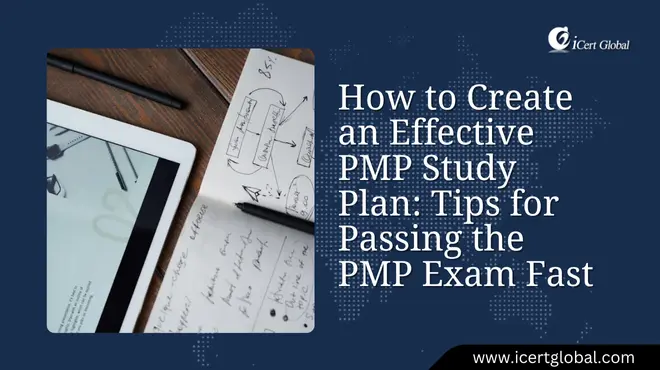
How to Create an Effective PMP Study Plan:
Create an effective PMP study plan for 10+ year professionals: master exam mindset, key project management tools, and
Stop writing fragmented, single-tier code. Master the enterprise architecture that powers 90% of all Beaumont, TX banking and IT systems.
You've mastered core Java, but your contributions often stop at single-file programs. You're stuck in a junior role because you lack the expertise to build scalable, multi-tier enterprise applications - the systems that handle billions of transactions daily in Beaumont, TX banking and telecom. Recruiters in Chennai and Pune searching for a Java full stack developer will filter out resumes that don't demonstrate mastery of Java frameworks like Spring and Hibernate. This isn't just another Java tutorial or syntax refresher. Our Certified Java EE Developer training is crafted by Principal Architects who have scaled mission-critical, high-traffic applications for major Beaumont, TX service companies and product firms. The program delivers a practical curriculum on Java Enterprise Edition, focusing on architecture that is stable, secure, and drives global business. Unlike generic bootcamps, you'll confront real enterprise problems. Learn to manage database transactions with Spring JDBC, build efficient ORM layers with Hibernate Queries, and decouple components using Spring AOP. The certificate validates your knowledge, but the real value is confidently refactoring legacy Servlet/JSP applications into modern Spring MVC patterns, proving your worth as a strategic contributor. This program is designed for mid-level developers aiming to pivot into senior, high-impact roles. Flexible evening and weekend schedules include live coding, Q&A sessions, and access to Java online compiler environments. Beyond the training, you'll receive production-ready Java code templates, dedicated server access for deployment practice, and 24/7 expert support. By the end, you'll be fully equipped with skills relevant for Java developer roles, ready to ace Java interview questions, understand Java documentation, master Java data types, and earn recognized Java certifications.
Master the critical layers: Presentation (Servlets/JSP/Spring MVC), Business Logic (Spring Core/AOP), and Persistence (JDBC/Hibernate/Spring Data).
Complete projects focusing on integrating a full three-tier application, including Web Service deployment and secure transaction management.
Gain deep, practical knowledge of the dominant enterprise framework, focusing on Dependency Injection (DI) and Aspect-Oriented Programming (AOP) for maintainable code.
Move past raw SQL by mastering Hibernate for efficient, object-oriented database access, including complex queries and relationship mapping.
Learn the practical steps to build and consume Web Services (SOA), preparing you for the inevitable shift to microservices architecture.
Get real-time help on complex stack errors and configuration issues from instructors who are actively writing enterprise Java code.

Get a custom quote for your organization's training needs.
Master the foundational technologies for building web applications. Learn how to manage session state, handle requests, and structure the presentation layer securely and efficiently.
Design and implement a robust Object-Relational Mapping (ORM) layer. Learn to use Hibernate Queries (HQL) and advanced relationship mappings (One-to-Many, Many-to-Many) to ensure data integrity and performance.
Master the inversion of control (IoC) container and Dependency Injection (DI) for highly decoupled, testable code. Utilize Spring AOP to manage transactions and logging centrally, cleaning up your business logic.
Implement the Model-View-Controller (MVC) pattern using the Spring MVC framework. Learn to configure controllers, use form binding, and manage request flow for scalable web apps.
Confidently manage transactional boundaries across multiple operations using Spring JDBC and declarative transaction management, preventing data corruption in concurrent systems.
Develop and consume SOAP and RESTful Web Services to integrate decoupled applications and microservices, a necessary skill for working in large, distributed IT environments.
If you write code, aspire to architect systems that run at scale, or are currently supporting a large Java application, this program is your mandatory pivot into the high-value Java Enterprise ecosystem.


Get the verifiable Java EE credential that proves your ability to build and deploy complex, multi-tier systems.
Access specialized project opportunities reserved for senior developers who master enterprise frameworks like Spring and Hibernate.
Gain authority over application architecture and design decisions on critical projects.
The Certified Java EE Developer certification is a technical validation for developers ready to build enterprise-grade applications. It is not for beginners - experience is the only thing that matters. Here is the high-level breakdown of what you need to qualify.
Prerequisite Knowledge: Strong proficiency in Core Java (OOP concepts, Collections, Multithreading, Exceptions) is non-negotiable. Without this foundation, passing the certification will be extremely difficult.
Hands-on Practice: Success requires relentless practice with configuration files and server deployment. Our comprehensive training program provides the mandatory structure and environment access.
Recommended Experience: At least 2+ years of professional software development experience is highly recommended to understand the architectural trade-offs discussed in the course.
The Reality: This is a specialization for developers ready to build the backend of major applications. Beginners should gain core Java experience before attempting this certification.
Master the presentation layer in Java using JSP. Learn to cleanly separate presentation logic from business logic, leverage JSTL (JSP Standard Tag Library), and understand the JSP compilation lifecycle. This knowledge is critical for real-world enterprise projects.
Master Object-Relational Mapping (ORM). Configure Hibernate, map Java objects to relational tables, and perform basic CRUD operations, moving beyond raw JDBC.
Write efficient database queries with Hibernate Query Language (HQL). Understand and implement complex relationship mappings, including One-to-Many and Many-to-Many, for enterprise-scale data models.
Master the fundamental concept of Inversion of Control (IoC). Configure the Spring container and implement Dependency Injection (DI) for highly decoupled, testable code.
Utilize Spring AOP to manage cross-cutting concerns (logging, security, transaction management). Learn to define advice, join points, and aspects to cleanly decouple services.
Master Spring's integration with the database. Use Spring JDBC Template for clean SQL access and understand how to seamlessly integrate Hibernate ORM with the Spring context for centralized transaction management.
Implement the Model-View-Controller (MVC) design pattern using Spring MVC. Master the request flow from Dispatcher Servlet to Controller and View Resolver, laying the foundation for scalable enterprise Java applications.
Write effective controllers using annotations. Master data binding, form validation, and handling different request types (GET, POST, PUT, DELETE) for RESTful services.
Integrate all three tiers: Spring MVC (Presentation), Spring Core (Business Logic), and Spring Hibernate (Persistence) into a single, cohesive, deployable enterprise application.
Develop and consume both SOAP and RESTful Web Services. Understand the principles of Service-Oriented Architecture (SOA) and its role in integrating large, distributed systems.
Master unit testing with JUnit and integration testing within the Spring context. Learn advanced debugging techniques for multi-tier Java applications, eliminating configuration issues.
Consolidate knowledge across all sections. Complete final practice assessments and review core configuration files (XML/Annotations) to ensure full readiness for the certification exam.

Our experts are ready to help you with any questions about courses, admissions, or career paths. Get personalized guidance from industry professionals.
"PMI®", "PMBOK®", "PMP®", "CAPM®" and "PMI-ACP®" are registered marks of the Project Management Institute, Inc. | "CSM", "CST" are Registered Trade Marks of The Scrum Alliance, USA. | COBIT® is a trademark of ISACA® registered in the United States and other countries. | CBAP® and IIBA® are registered trademarks of International Institute of Business Analysis™.


